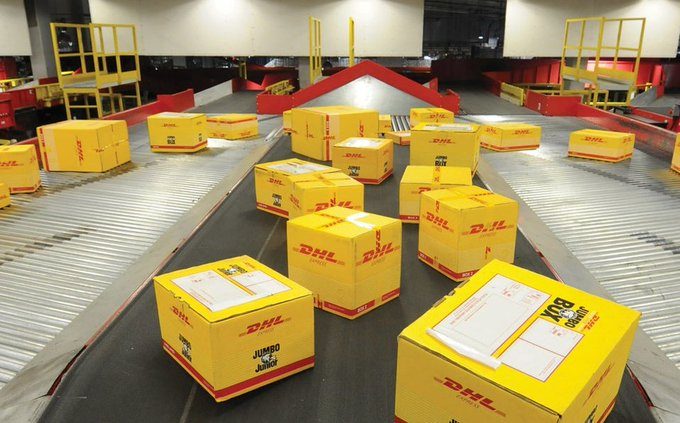CPATPP may save UK exporters from Canada free trade deal failure
For UK automotive manufacturers, a new trade route to Canada beckons – via the Pacific. Not ...

DHL has come a long way since the end of February, when it announced group ebit losses of between €60m-€70m ($66m-$77m) in the month.
With help from the Global Forwarding unit, up 53%, group ebit rose 16% in the second quarter, to some €890m.
This number has encouraged DHL to award every employee (excluding management) a one-off €300 bonus, at a cost of about €200m – and it forecasts an operating profit for the year of €3.5bn-€3.8bn.
This is down on 2019’s record €4.1bn, but its second-quarter adjusted operating profit came in 25% above a year earlier.
Chief executive Frank Appel praised the group’s “tireless” employees, and the group’s “fundamental strength and resilience”.
“Our strategy is focused on achieving three bottom lines: we want to be the provider; employer; and investment of choice,” he said.
“Our success during the past months of the crisis is based on balancing these goals in everything we do. We have therefore decided to pay a dividend at the previous year’s level to our shareholders and a special bonus for our employees.”
However, no mention was made of the news that DHL is cutting some 2,200 workers at the UK’s Jaguar Land Rover plant, whose salaries will no doubt help fund the bonuses. The group is proposing a dividend of €1.15 per share.
The beginning of the second quarter saw an “initial sharp decline in volumes”, but the group adjusted its network and volumes began to recover in the second half, with e-commerce volumes seeing a positive development from the end of March.
Its Express division saw ebit rise to €560m, up 7.5%, while operating profit for Global Forwarding rose an impressive 53% to €190m. Supply Chain suffered impairments from lockdown measures of about €60m, giving it ebit of about €30m, down about 65%. E-commerce Solutions, despite a €30m impairment, broke even, following the previous year’s loss of €18m.
Operating profit in Post & Parcel Germany was about €260m, up 47%.
The group said there was a “continuous strong development of cash flow; free cash flow stood at more than €500m in the second quarter, which is significantly up compared with last year (2019: € -547m). Thus, a positive free cash flow of more than €100m was achieved in the first half-year”.
Full-year group ebit, expected to be down year on year, between 7% and 14%, and will include about €400m of expenses related to its StreetScooter activities, the bonuses and one-off Covid-related impairments totalling about €100m. It will also pay some €300m for its 777 fleet renewal programme.
But Covid will continue to impact the group, it said and offered three potential scenarios for full-year 2022.
“In the favourable case of a rapid recovery of the global economy, without broad setbacks in the pandemic development (v-shape recovery), the group expects ebit of more than €5.3bn. In case of a slower recovery, eg, with at least local setbacks in the pandemic development (u-shape recovery), the group expects ebit of approximately €5.1bn.
“In the least-favourable case, of a very slow development of the recovery, eg, due to significant setbacks in the pandemic development (L-shape recovery), the group expects ebit of approximately €4.7bn.”
Investment plans remain unchanged, at between €8.5bn and €9.5bn between 2020 and 2022.
You can read a more in-depth analysis of the results on Premium here.
Comment on this article
Salty Boatman
July 08, 2020 at 8:00 pmThis is deliberately inflammatory.
JLR have been struggling for a couple of years now, and as the supply chain partner, it’s DHLs obligation to reduce costs. The pandemic has merely exacerbated that need; the people on that contract and surrounding it have seen this coming for miles.
The salaries of 2,200 individuals doesn’t come close to the scale of the global bonus, when you consider that most of these are directly paid for by JLR anyway.
Grow up.
Alessandro Pasetti
July 09, 2020 at 9:05 amHi Salty Boat,
Interesting comment. Unsubstantiated, but interesting nonetheless.
So what number you have in mind, and on what basis (including pension considerations), when you say “The salaries of 2,200 individuals doesn’t come close to the scale of the global bonus”?
Best regards,
Ale
Bob
July 30, 2020 at 12:35 amNot very unsubstantiated.. the article says 2,200 employees. If each of these employees is making €80K/year then that total is less than €2M. It says the bonus cost €200M so I think it’s more about that part of the operation not being strategic to hold on to
Freddie
July 09, 2020 at 12:02 pmDhl use 40% agency but none of them will receive any bonus even though some of them have been with company for years